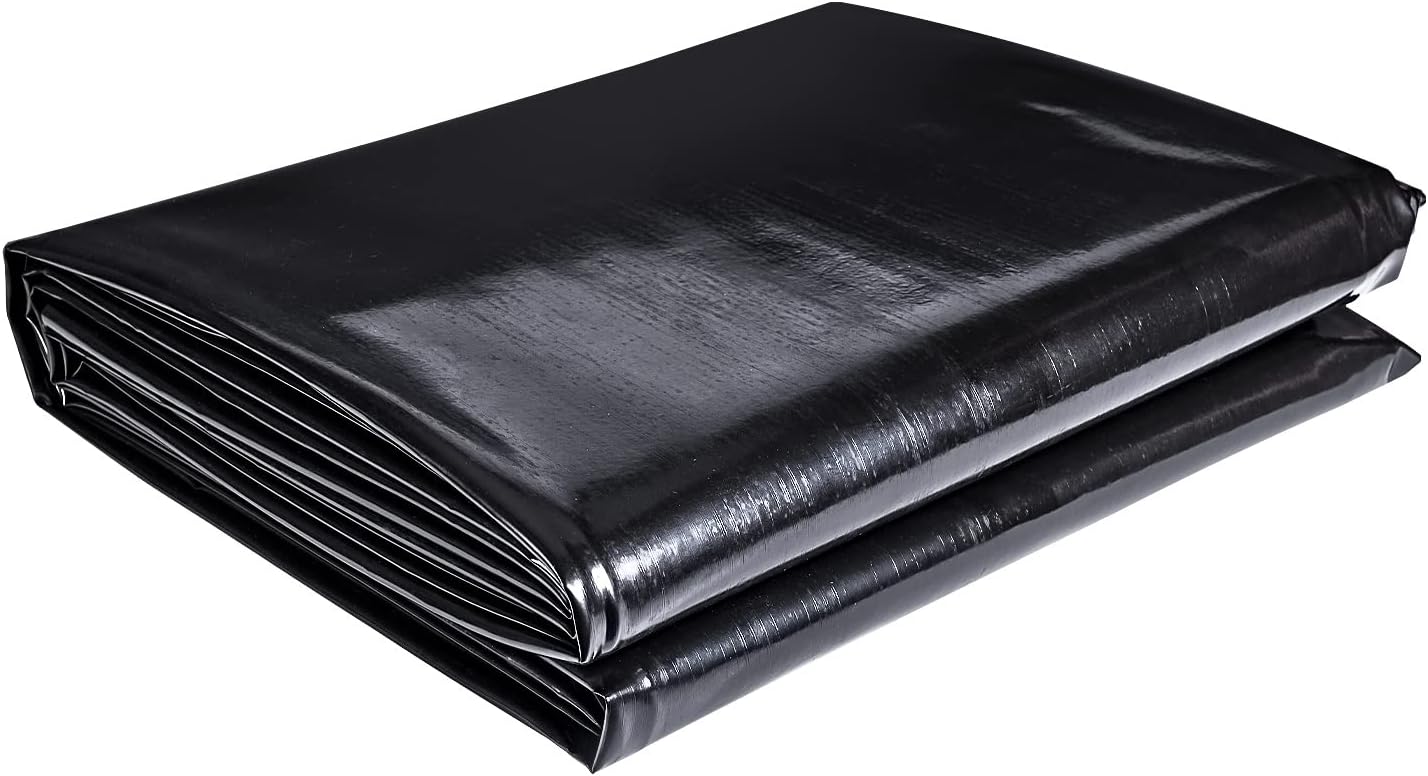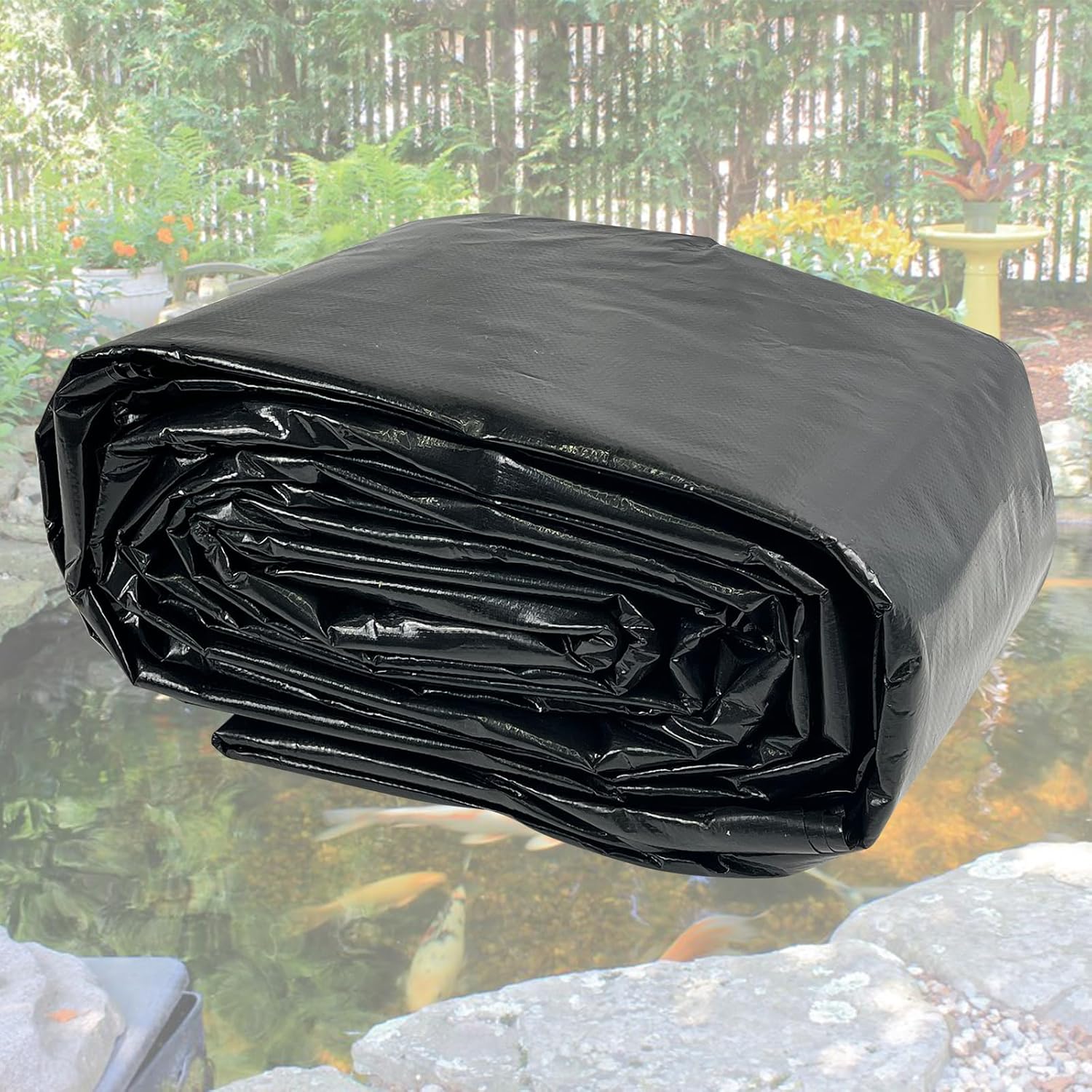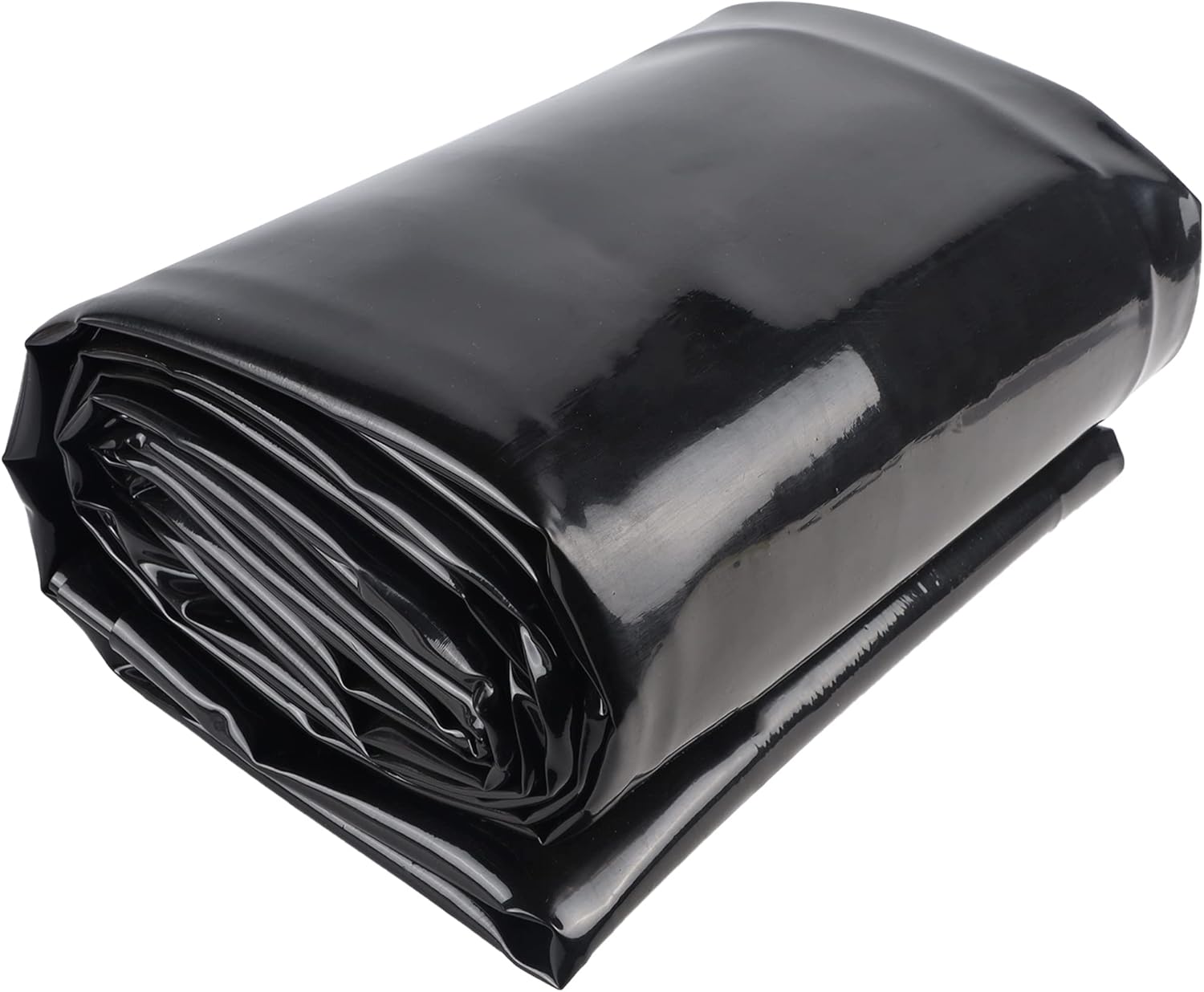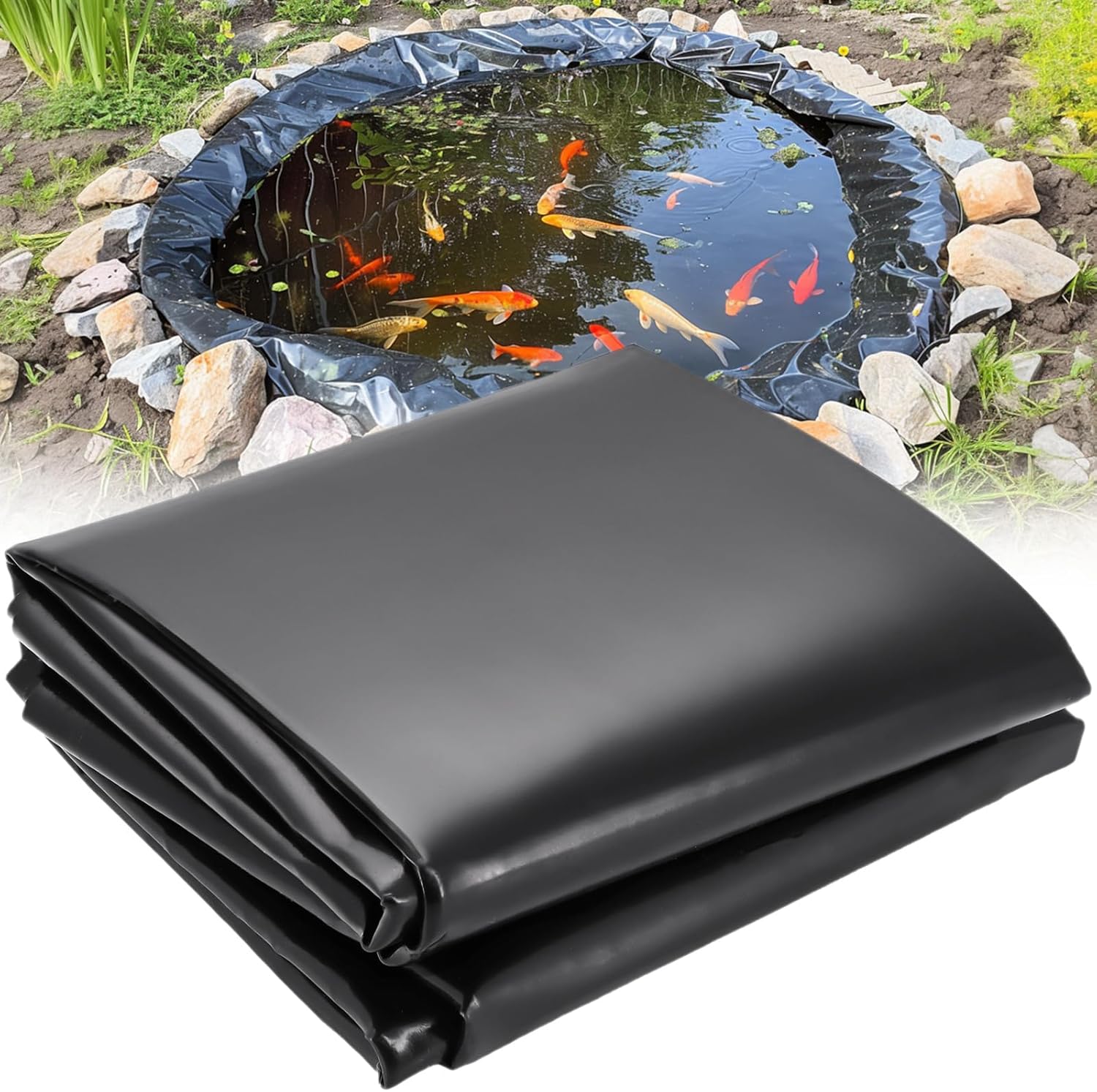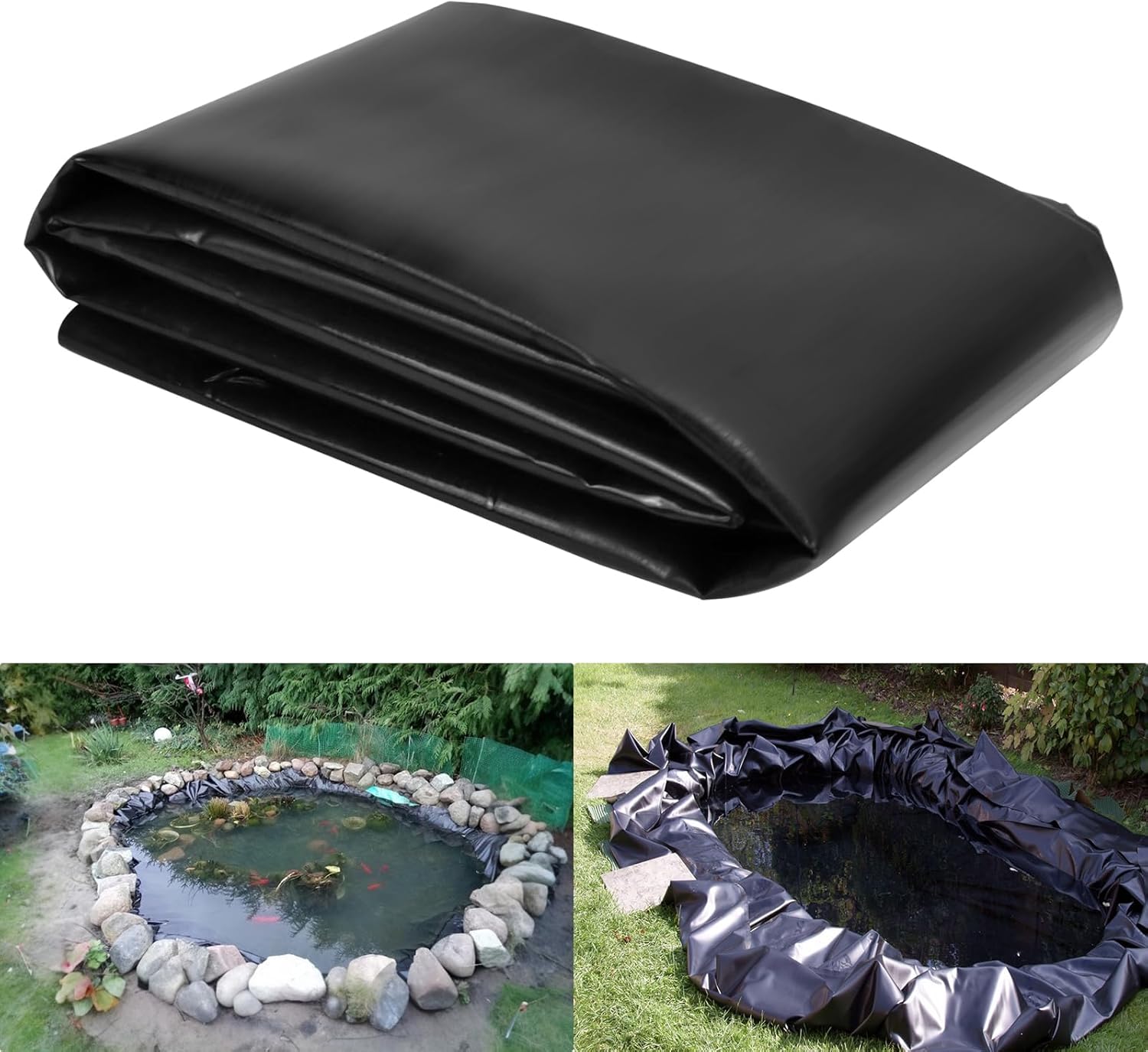Pond liners are a crucial component of any pond, providing a barrier that keeps water in and prevents leaks. They come in various materials such as EPDM, PVC, and rubber, each with its lifespan. Understanding how long pond liners last can help you make informed decisions when constructing or maintaining your pond.
5 Best Durable Pond Liners For Outdoor Ponds, Garden Fountain, And Waterfall
Factors Affecting Pond Liner Lifespan
Several factors can influence the lifespan of a pond liner. These include:
- Pond Liner Material: The material of the pond liner plays a significant role in determining its durability and lifespan.
- Installation Quality: Proper installation techniques can prolong the life of a pond liner.
- UV Exposure: Exposure to sunlight can degrade certain pond liner materials over time.
- Chemical Exposure: Harsh chemicals in the water can impact the longevity of the pond liner.
- Temperature Fluctuations: Extreme temperatures can affect the flexibility and integrity of the liner.
EPDM Pond Liners
EPDM pond liners are known for their durability and flexibility. They are resistant to UV rays and have a lifespan of around 20-25 years when properly installed and maintained. EPDM liners are an excellent choice for ponds of all sizes.
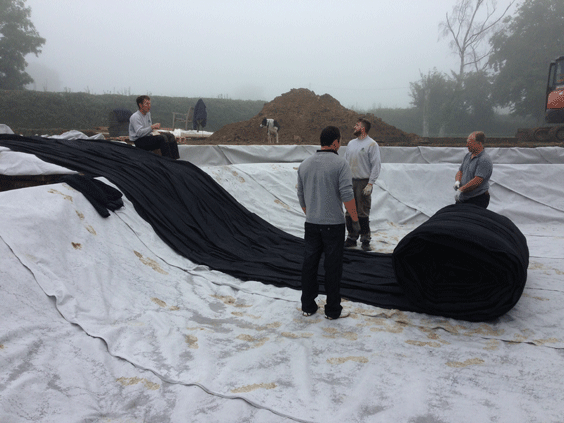
Credit: www.pondlinersonline.co.uk
PVC Pond Liners
PVC pond liners are more affordable than EPDM liners but have a shorter lifespan of around 5-10 years. They are prone to UV damage and may require replacement sooner than other materials.
Rubber Pond Liners
Rubber pond liners are durable and puncture-resistant, making them ideal for larger ponds. They have a lifespan of 15-20 years and are relatively low maintenance compared to other materials.

Credit: www.btlliners.com
Maintaining Your Pond Liner
Proper maintenance is essential for extending the lifespan of your pond liner. Here are some tips to help you care for your pond liner:
- Regular Inspections: Check for signs of damage or wear on your pond liner.
- Clean Debris: Remove leaves, twigs, and other debris from the pond to prevent punctures.
- Use Underlayment: Protect your pond liner with underlayment to reduce wear and tear.
- Monitor Water Quality: Maintain proper water chemistry to prevent damage to the liner.
- Repair Promptly: Patch any holes or tears in the liner as soon as they are discovered.
When to Replace Your Pond Liner
Eventually, all pond liners will need to be replaced due to wear and tear. Signs that it may be time to replace your pond liner include:
- Visible Damage: Large tears, holes, or cracks in the liner.
- Leakage: If you notice a significant loss of water from your pond, it may be due to a damaged liner.
- Deterioration: Brittle, stiff, or discolored liners may indicate the need for replacement.
- Frequent Repairs: If you find yourself constantly patching the liner, it may be more cost-effective to replace it.
Conclusion
In conclusion, the lifespan of a pond liner depends on various factors such as material, installation, and maintenance. EPDM liners are a popular choice for their durability, while PVC liners are more budget-friendly but have a shorter lifespan. Rubber liners offer a balance of durability and longevity. By properly caring for your pond liner and monitoring its condition, you can ensure that your pond remains watertight for years to come.



